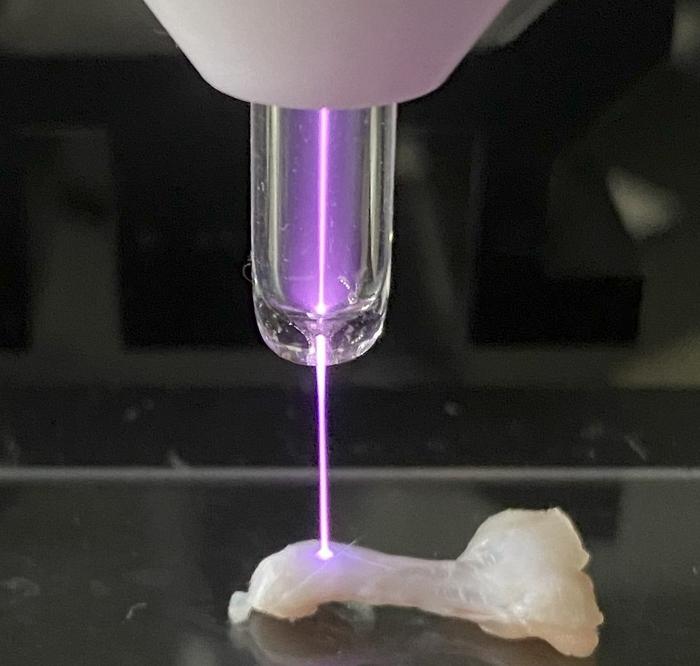Ruptured Achilles tendon shows faster repair amid plasma irradiation treatment
What is the largest ligament in the human body? It might surprise some people that it is the Achilles tendon. Even though it is also considered the toughest ligament, the Achilles tendon can rupture, with many such injuries involving sports enthusiasts in their 30s or 40s. Surgery might be required, and a prolonged period of […]

What is the largest ligament in the human body? It might surprise some people that it is the Achilles tendon. Even though it is also considered the toughest ligament, the Achilles tendon can rupture, with many such injuries involving sports enthusiasts in their 30s or 40s. Surgery might be required, and a prolonged period of rest, immobilization, and treatment can be difficult to endure.

Credit: Osaka Metropolitan University
What is the largest ligament in the human body? It might surprise some people that it is the Achilles tendon. Even though it is also considered the toughest ligament, the Achilles tendon can rupture, with many such injuries involving sports enthusiasts in their 30s or 40s. Surgery might be required, and a prolonged period of rest, immobilization, and treatment can be difficult to endure.
Seeking to shorten the recovery time, a research team led by Osaka Metropolitan University Graduate School of Medicine’s Katsumasa Nakazawa, a graduate student in the Department of Orthopedic Surgery, Associate Professor Hiromitsu Toyoda, and Professor Hiroaki Nakamura, and Graduate School of Engineering Professor Jun-Seok Oh has focused on non-thermal atmospheric-pressure plasma as a treatment method.
This study is the first to show that such plasma irradiation can accelerate tendon repair. The team ruptured then sutured the Achilles tendon of lab rats. For one group of rats, the sutured area was irradiated with a helium plasma jet. The plasma-irradiated group exhibited faster tendon regeneration and increased strength at two, four, and six weeks after surgery compared to the untreated group.
“We have previously discovered that irradiation of non-thermal atmospheric-pressure plasma has the effect of promoting bone regeneration. In this study, we discovered that the technology also promotes tendon regeneration and healing, showing that it has applications for a wide range of fields,” Professor Toyoda declared. “Combined with current tendon treatments, it is expected to contribute to more reliable tendon regeneration and shorter treatment time.”
The results were published in PLOS ONE.
###
About OMU
Established in Osaka as one of the largest public universities in Japan, Osaka Metropolitan University is committed to shaping the future of society through “Convergence of Knowledge” and the promotion of world-class research. For more research news, visit https://www.omu.ac.jp/en/ and follow us on social media: X, Facebook, Instagram, LinkedIn.
Journal
PLoS ONE
DOI
10.1371/journal.pone.0301216
Method of Research
Experimental study
Subject of Research
Animals
Article Title
In vivo study on the repair of Rat Achilles tendon injury treated with non-thermal atmospheric-pressure helium microplasma jet
Article Publication Date
14-May-2024
COI Statement
The authors have declared that no competing interests exist.
What's Your Reaction?

































